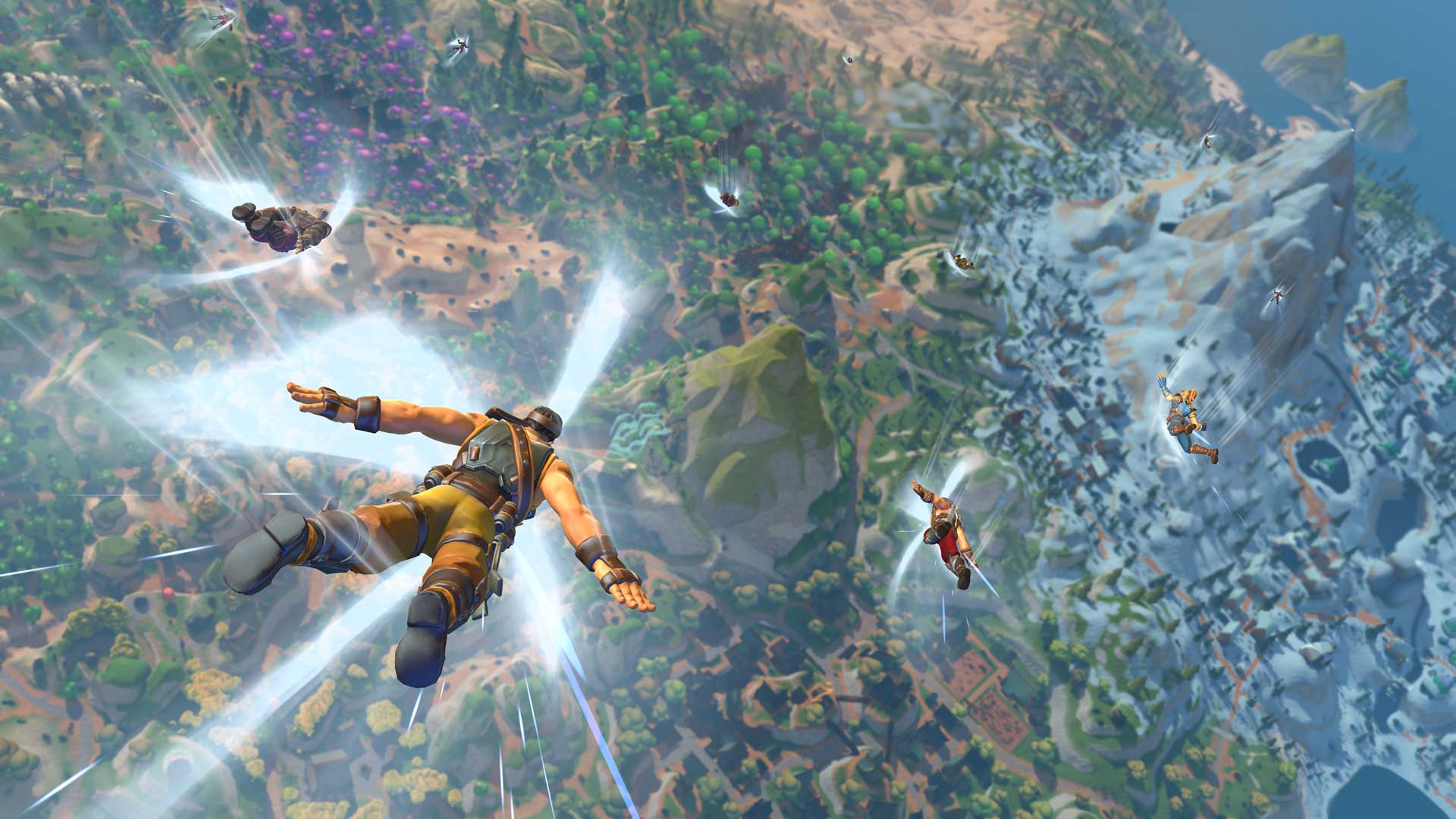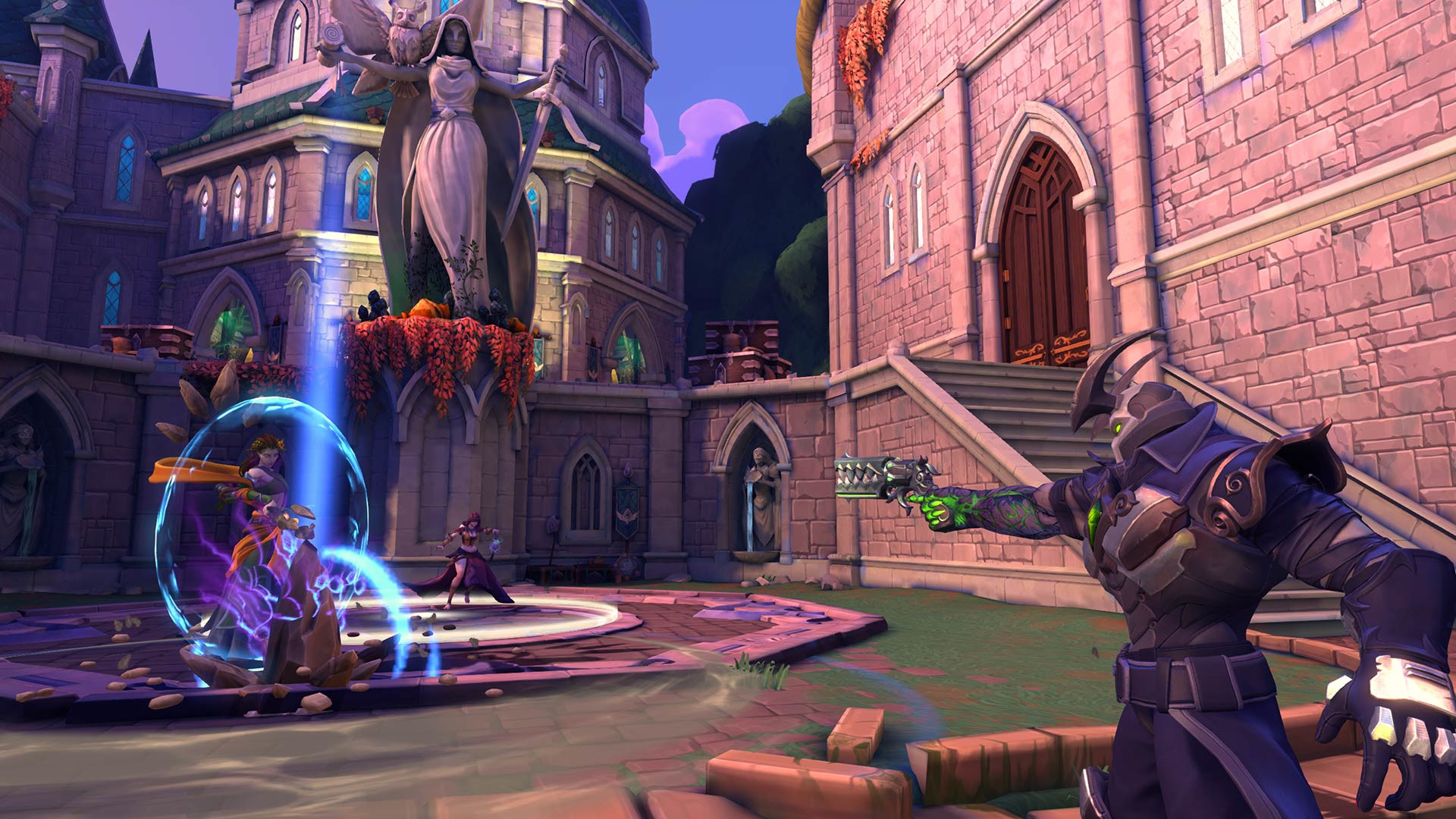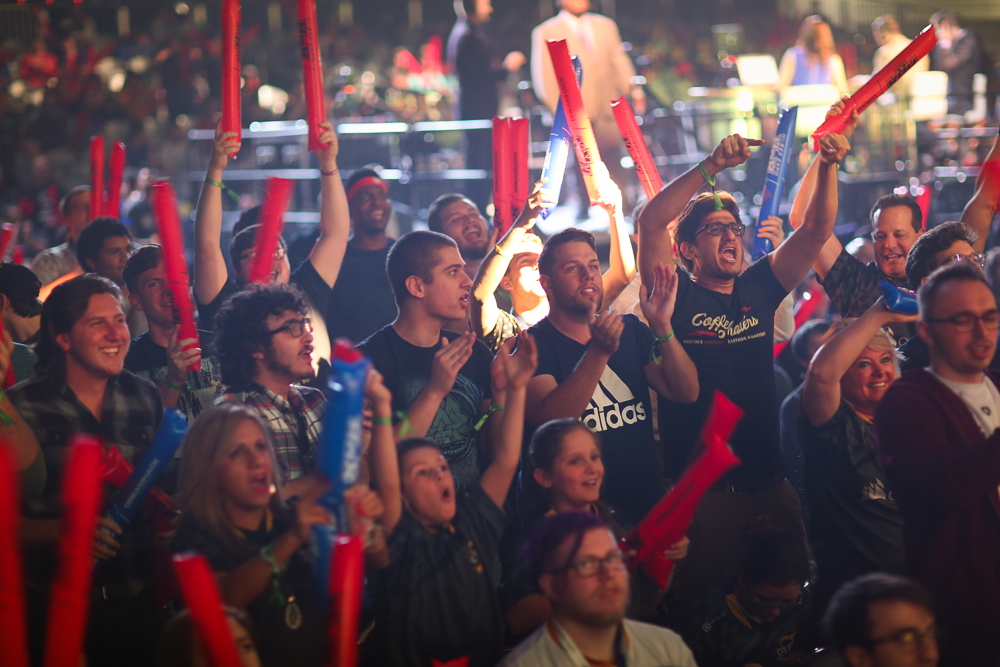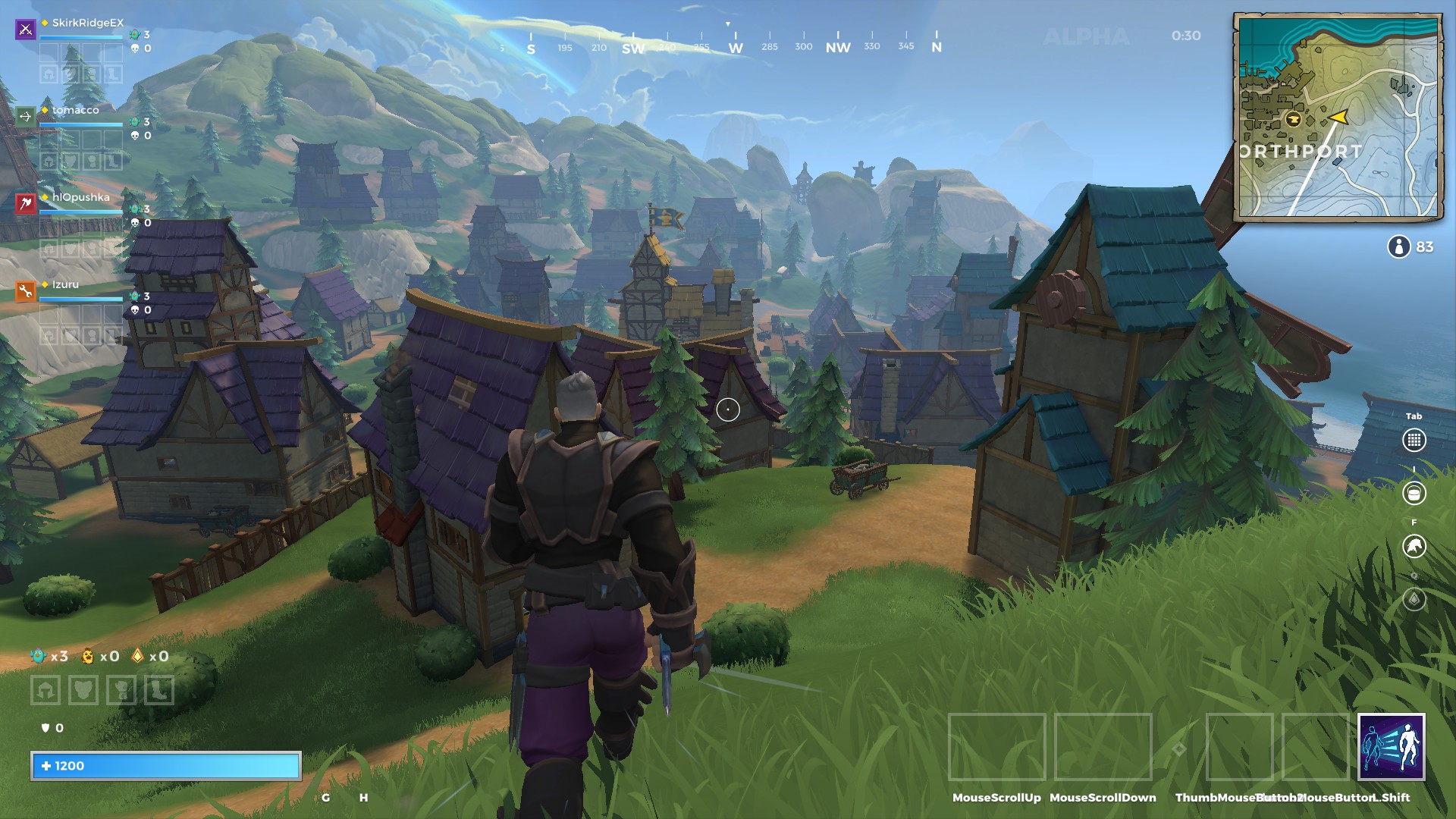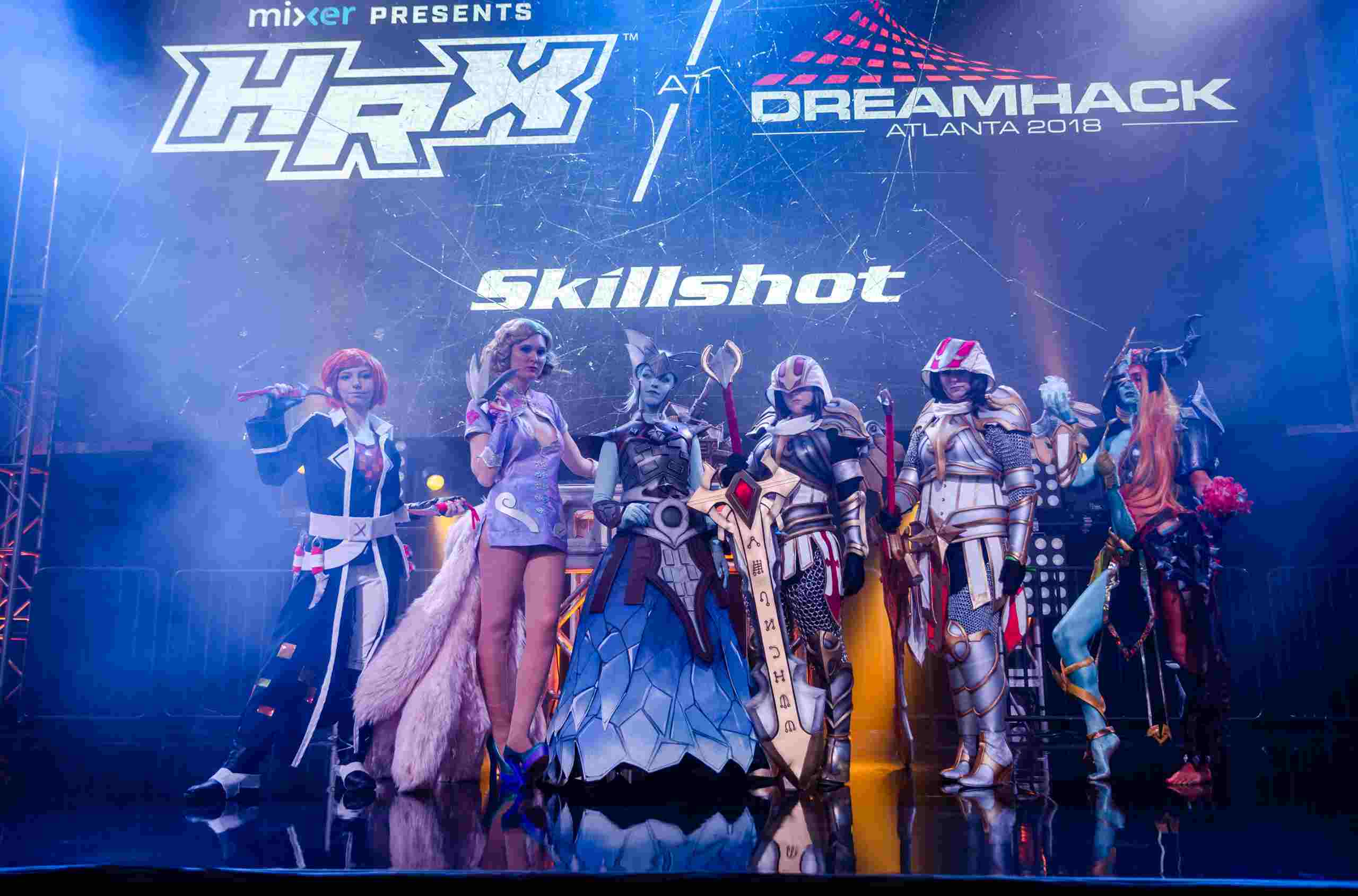Is Hi-Rez living in Blizzard's shadow?
Throwing shade
Hi-Rez, the developers of Smite and Paladins, don’t have it easy. They compete head-on with Blizzard’s juggernauts; with their fingers stuck in the same hero-shooter-flavoured pies the comparisons are inevitable, and rarely favourable. Depending on whose questionable extended metaphors you listen to, you might hear it argued that they spend their time looking at where their competitors’ fingers are, and then follow suit.
You might also hear that their games can be uneven, or poorly managed. Some of that rings true, though much is hyperbole. Hi-Rez have made a few missteps, but that’s partly because they take a lot of steps in general.
They’re behind the long deceased Global Agenda, the recent-ishly deceased Tribes: Ascend, and the cancelled Clash Royale-inspired Smite Rivals. Four games are still live and kicking: there’s Paladins, a team FPS where wizards wield modern weaponry and craft their playstyles via card-slots; there’s Smite, a third-person God-squabbling MOBA that’s tied to their CCG, Hand Of The Gods: Smite Tactics; and there’s Realm Royale, a battle royale game currently in early access with classes, a smart Forge system for upgrading loot that minimises the lulls endemic to the genre, and on-death chicken transformations that I adore. A lot.
Two things should be obvious, at this point. Those games are similar to some other games, but they've got plenty of ideas of their own. Good ones.
So, why do people hate on Hi-Rez?
First let’s cover the missteps. Last month, CEO Erex Goren told a Realm Royale streamer to “play the mode like you are supposed to, with a team and stop crying”. Earlier this year, a Paladins advert pinched some art from Overwatch – a wince-worthy fuck up, in the face of numerous accusations that call out Paladins for ripping off Overwatch.
Then there’s Cards Unbound. Cards Unbound was a system for Paladins, removed after the players – and the devs – rebelled against it. It required players to level up their cards by finding duplicate cards in loot boxes, providing incremental power (or worse, the chance of gaining incremental power) with every micropurchase. To give you some idea of how Not Great the idea was, both the system and the response to it was akin to EA’s Star Wars Battlefront 2.
From the outside, it would be easy to see the Cards Unbound system as about greed. When I asked Paladins brand director Alex Cantatore about it at the Hi-Rez Expo in Atlanta, he told me it was about survival.
“About this time last year, Paladins was in a very rough financial situation. We had a lot of players, but none of them spent any money - we were haemorrhaging cash hand over fist just keeping the game alive. It was reaching a point where the company needed to make a decision. Do you keep investing in a product that is losing you money, or could those resources be better put elsewhere?”
Monetising power became the answer. In some ways, it was the right one: “For the first time, as we put out Cards Unbound, the game was at least breaking even. It wasn’t blowing the doors off or anything, but we were doing OK.” In more ways, it wasn't.
“It was a rough time to come to work everyday. People weren't happy, because every day you come into work and everyone on Twitter and Facebook is like ‘dude, you’re ruining your game. Don’t you understand we don’t want this?’ It’s like, we understand, but we’re going to go out of business if we don’t start making money. It’s something that we didn’t want to do, but the company felt like we had to.”
Paladin's current system, where money is made from cosmetics tied into events that develop an ongoing story, proves there were better options on the table. The takeaway is twofold: firstly, Hi-Rez have now stepped further away from monetising power than they ever have, and demonstrably learn from community feedback. Secondly - as easy as Reddit makes it to think otherwise - Hi-Rez do have a passionate community, and they are willing to stick by them.
I met some of them. They were at a panel with the Paladin devs at Dreamhack Atlanta, which also hosted the Hi-Rez Expo. There can’t have been more than two dozen of us in the room, but watching devs interact with their fans, with people expressing open admiration for their work, was one of the most wholesome sights I’ve seen in this industry. Hi-Rez get slammed more heavily than any other company I can care to name, yet there I sat, witnessing the exact opposite.
It's not just Paladins. There's a Reddit war over Realm Royale, too, where posts bemoaning unwelcome changes and posts that tell people to stop whinging can both gain traction. While the vitriol in some of those posts is abhorrent, I can see why there's pushback. Some updates have temporarily stripped Realm Royale of its best ideas - but this is all entangled with the twisted brambles of early access. I like the dev's experimental approach, but also find their experiments a bit daft.
I asked Realm brand director Rory Newbrough about the difficulty of conveying their design philosophy, considering how different devs treat early access. "There was a mismatch on what the game was trying to do and what people expected out of it. Because we were iterating hard on the game design aspects rather than trying to update it and put content out there, there was some tension." Those game design aspects are firmly locked in place now, along with Realm's progression from alpha to beta.
Which is exactly how early access should work: trying lots of things so you can settle on the best. When Newbrough mentioned they were being more careful with the console betas and only providing keyed access to the early stages, I asked if he regretted not doing the same for PC.
"I think that would have been the best play. It’s hard to say, because we got a lot of great engagement, right? We didn’t do any influencer promotions, we didn’t do any partnered promotions, everything was pure organic. The influencers that played the game wanted to play the game, they caught on to it on their own, and they told their friends and they really enjoyed it. So we got a lot of great buzz, the name Realm Royale was out there, there’s a lot of value inherently there. But if we were going to go back, it’s hard to say - hindsight’s 20-20 - but considering keyed access for alpha would have been on the table."
While Realm has struggled to get people to understand early access, Paladins has struggled with people's understanding of iterative game design. It's true that many Paladins characters have similar ability sets to those in Overwatch, but it's also true that both games are indebted to TF2. It's a point Cantatore was understandably keen to stress: "I think we all owe a lot to Team Fortress 2, which defined much of the genre in the first place. The whole thing started for Paladins when we were like ‘yeah, let’s make Global Agenda 2. We can kind of make it like Team Fortress 2, that’ll be fun!"
I thought I'd need to spend longer dissecting the history of Paladins and the extent to which the game differs from Overwatch, but then I found this Reddit post from Hi-Rez COO Todd Harris. It's a calm, evidence-backed takedown of clone allegations, with a neat section that highlights Overwatch abilities that are similar to those in Global Agenda.
It also speaks to a broader point, which is that developers learning from and deploying each other's ideas results in better games for everyone. It's a point that applies to any creative medium - as well as just 'ideas' in general. It's also a point that can get drowned in the turbulent seas of rival fandoms.
Hi-Rez are living in Blizzard’s shadow in so far as Blizzard is bigger. But size isn't everything.
Size didn't matter to the people at that Paladins panel, nor the one the day after where players and devs collaborated to rehash a character's lore. It didn't matter to the gleeful faces watching the esports events, banging their inflatable tubes together with gusto. It didn’t even particularly matter to me, when after watching several hours of the Paladins semi-final I decided to go and play some more myself.
I did have a good time - though yes, I've had more fun playing Overwatch. But that's the wrong punchline.
Hi-Rez learn from their own mistakes and successes, as well as those of others. Their games apply original ideas to proven formulas, and are all the better for it. That’s something that the cynical shouldn’t lose sight of.


